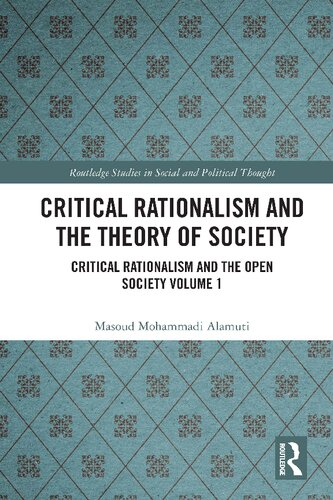

Most ebook files are in PDF format, so you can easily read them using various software such as Foxit Reader or directly on the Google Chrome browser.
Some ebook files are released by publishers in other formats such as .awz, .mobi, .epub, .fb2, etc. You may need to install specific software to read these formats on mobile/PC, such as Calibre.
Please read the tutorial at this link: https://ebookbell.com/faq
We offer FREE conversion to the popular formats you request; however, this may take some time. Therefore, right after payment, please email us, and we will try to provide the service as quickly as possible.
For some exceptional file formats or broken links (if any), please refrain from opening any disputes. Instead, email us first, and we will try to assist within a maximum of 6 hours.
EbookBell Team

5.0
28 reviewsInvestigating Karl Popper’s philosophy of critical rationalism, Critical Rationalism and the Theory of Society, Volume 1, explores a non-justificationist conception of critical reason and its fundamental outcomes for the theory of society.
Through a set of fundamental contributions to epistemology, the theory of rationality and sociology, this volume (a) situates the idea of critical rationalism in its true epistemological context, (b) uses non-justificationist epistemology to reinvent critical rationalism and (c) applies its revised concept of rationality to show how people’s access to critical reason enables them to agree on the common values and social institutions necessary for a peaceful and just social order. These contributions lead the reader to a new epistemological understanding of the idea of critical rationalism and recognition of how a non-justificational concept of reason changes the content of the theory of society.
The reader also learns how thinkers, movements and masses apply their critical reason to replace an established social order with an ideal one through activating five types of driving forces of social change: metaphysical, moral, legal, political and economic. Written for philosophers and sociologists, this book will appeal to social scientists such as moral philosophers, legal scholars, political scientists and economists.